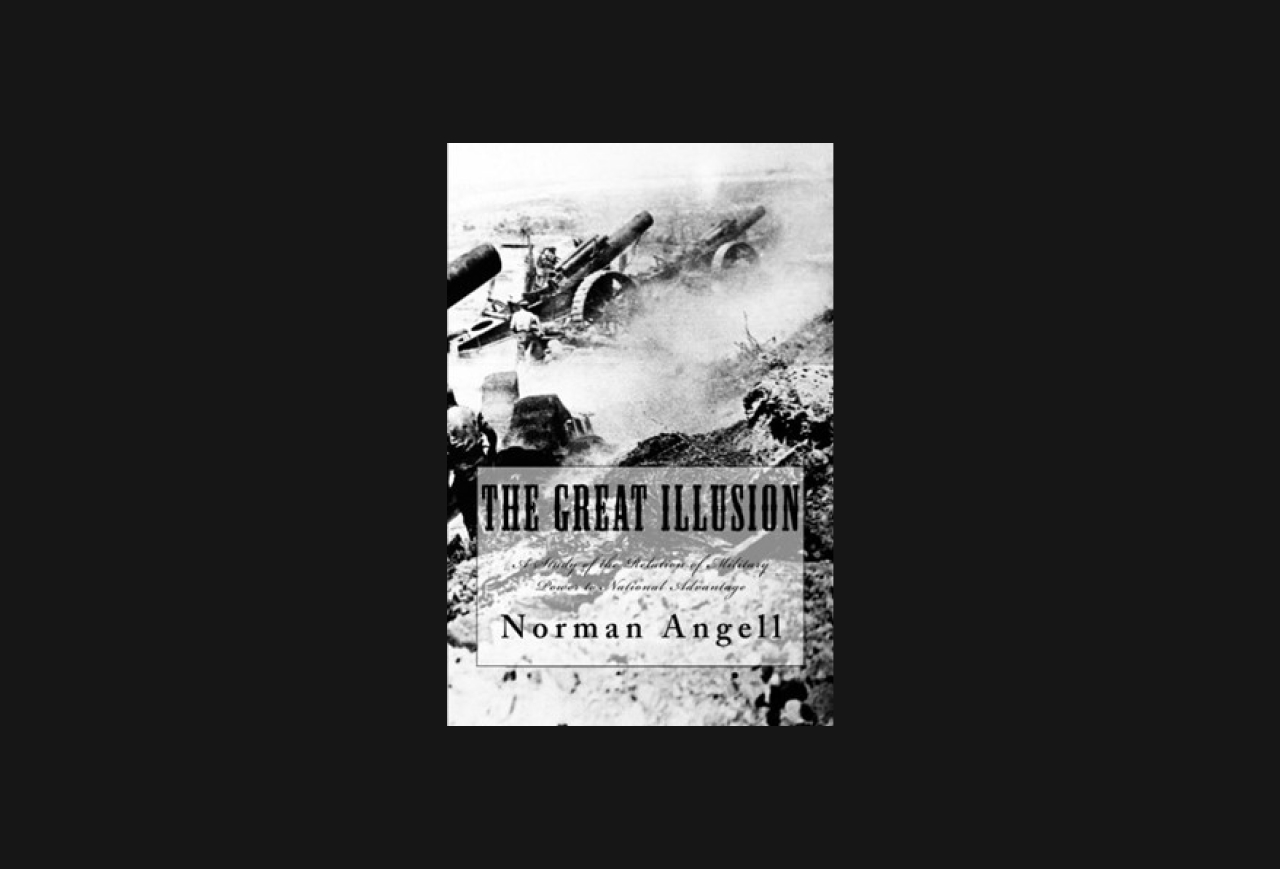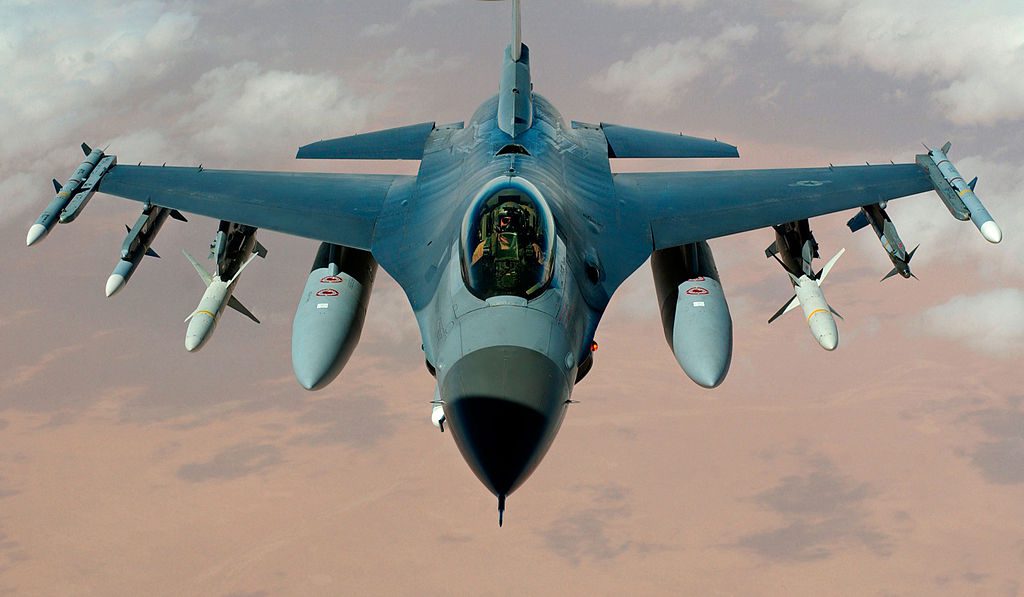In 1910, the same year that the World Peace Foundation was established, the British writer (and later Member of Parliament) Norman Angell published his book, The Great Illusion: A Study of the Relation of Military Power to National Advantage.
Angell’s argument is widely mis-stated as a belief that war was impossible in a world in which the great powers were bound together by international trade. If that were the case, World War One showed him wrong. Actually, Angell’s argument is that war was irrational, driven by naïve but commonly held beliefs about the logic of international power relations.
The following is from pages 16-17 of the third American edition of his book, published in 1913:
Where can the Anglo-American rivalry of armaments end?… Neither side can yield to the other, as the one so doing would, it is felt, be placed at the mercy of the other, a situation which neither will accept.
There are two current solutions which are offered as a means of egress from this impasse. There is that of the smaller party, regarded in both countries for the most part as one of dreamers and doctrinaires, who hope to solve the problem by a resort to general disarmament, or, at least, a limitation of armament by agreement. And there is that of the larger, which is esteemed to be more practical party, of those who are persuaded that the present state of rivalry and recurrent irritation is bound to culminate in an armed conflict, which, by definitely reducing one or other of the [belligerent] parties to a position of manifest inferiority, will settle the thing for at least some time, until after a longer or shorter period a state of relative equilibrium is established, and the whole process will be recommenced da capo.
This second solution is, on the whole, accepted as one of the laws of life: one of the hard facts of existence which men of ordinary courage take as all in the day’s work. And in every country those favoring the other solution are looked upon either as people who fail to realize the hard facts of the world in which they live, or as people less concerned with the security of their country than with upholding a somewhat emasculate ideal; ready to weaken the defenses of their own country on no better assurance than the prospective enemy will not be so wicked as to attack them.
To this the virile man is apt to oppose the law of conflict… this is this the currently accepted argument.
Angell’s book is a refutation of the ‘currently accepted argument,’ which, he shows, is a matter of ‘opinions, bold and erect as they may still stand, [that] are in reality but empty shells. One shove would be fatal. Why is it not given?’ (p. 187).
It is the adherents of military logic who are the true dreamers and doctrinaires. While millions are prepared to throw their energies into building battleships and mobilizing armies, Angell concludes,
barely dozens will throw themselves with equal ardor into that other department of national defense, the only department which can really guarantee security, but by means which are invisible—the rationalization of ideas.
The great illusion lives on in America’s global policies today.



